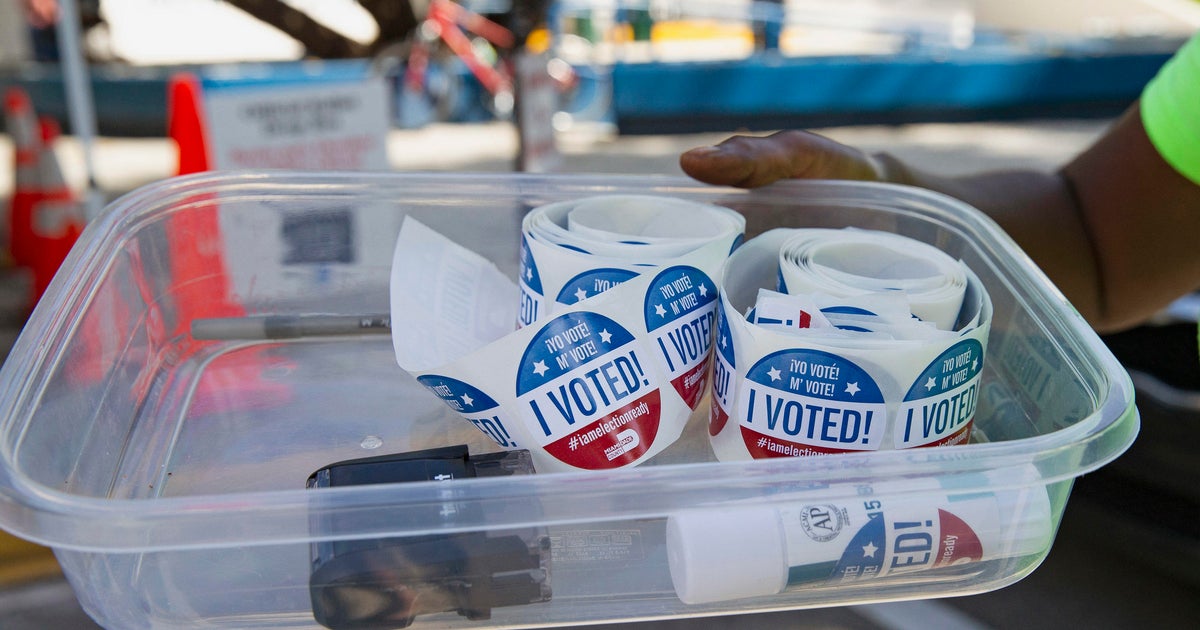Gov. Scott Wants Citizens Property Insur. To Watch Costs
TALLAHASSEE (CBSMiami/NSF) - Gov. Rick Scott isn't convinced that Citizens Property Insurance Corp. should have rebuffed his request for an international travel ban, even if the overseas trips were part of a $3.2 billion deal that saved the state-backed insurer $233 million.
At the request of Scott, Citizens President and CEO Barry Gilway appeared before the state Cabinet on Tuesday to explain $48,006 spent on trips that involved Gilway, Citizens Chairman Chris Gardner and three others during the first four months of the year.
The four trips were to Bermuda, London and Zurich, the heart of the reinsurance industry.
"Citizens has done a good job of downsizing, but they have to watch how they spend their money," Scott told reporters after the Cabinet meeting. "Our citizens are on the hook for Citizens insurance, so we have to make sure they watch how they spend their money."
Scott added he wasn't convinced that he is wrong for calling on Citizens to change its policy so it prohibits international travel by board members.
Attorney General Pam Bondi also scoffed at the combined cost of the trips, noting $48,000 "is more than my lawyers make, starting lawyers, in an entire year."
Gilway said it was important to have Gardner --- appointed chairman last August by state Chief Financial Officer Jeff Atwater --- appear face-to-face with people involved in the reinsurance deal. Only Gardner could give assurances that that the board would approve any deal reached, Gilway said.
"This is a high-stakes game, we were going to the market and asking for $3.2 billion worth of capital, and we needed every single advantage we could," Gilway said. Reinsurance is a type of backup coverage that helps insurers pay claims after disasters such as hurricanes.
"I can make a commitment on management, but I cannot make a commitment on the part of the board. Chairman Gardner can," Gilway added.
However, one of the more contentious points has focused on Gardner being approved to spend two nights in a $425-per night resort in Bermuda in April, which exceeded Citizens' $373-per night cap on Bermuda travel.
Gilway said he approved the higher rate, based on U.S. State Department travel guidelines for foreign travel, as Gardner was added late to the trip.
When it was later determined that federal guidelines do not offer the flexibility needed to cover the higher rate, Gardner paid the difference, Gilway said. The discussion at Tuesday's Cabinet meeting came after The Palm Beach Post reported on Gardner's Bermuda trip.
Atwater defended Gardner as being all business and said if a hurricane hit Florida, the state-backed insurer would have been soundly, and justly, criticized if it failed to close on the reinsurance deal because of a ban on travel.
"Had these efforts over the last 24 months not taken place, and a hurricane event had taken place," Atwater said, "the Monday morning quarterbacking that would have occurred, that you missed out on transactions such as this, and instead left that burden on the back of hard-working Floridians to carry on their own, instead of dispersing it across the market place, we all would have been criticized."
Citizens said the trips paid off because it was able to purchase more than $3.2 billion in reinsurance at roughly the same cost it paid in 2013 for $1.85 billion in reinsurance protection. That translated into savings of $233 million compared to what it would have cost to purchase the $3.2 billion worth of coverage at 2013 rates.
Gilway said Citizens has shed the image that prevailed when he was brought on two years ago, a time when Citizens was criticized for having become a bloated agency with 1.5 million policyholders.
In March 2013, the Citizens board implemented new travel restrictions and rates for employees in an effort to improve the public perception of the company.
A state audit had found that between Jan. 1, 2012, and Aug. 31, 2012, Citizens compiled more than $1.3 million in travel-related expenses, of which $454,111 was related to auto travel, $163,625 for airfare and $441,746 for hotel accommodations. Another $138,320 was for meals and $107,751 was billed under room fees.
Gilway said a further audit has found that since the changes were put in place, expenses dropped 61 percent for executive travel. But he has defended some of the travel, noting that international trips sometimes come with high costs that are hard to avoid. When the travel rates first went into effect, they were not applied to board members. Gilway decided not to include the seven board members because they are not employees of the agency and are not paid for their work.
As of June 30, Citizens had 933,422 policies.
The News Service of Florida's Jim Turner contributed to this report.
RELATED CONTENT:



